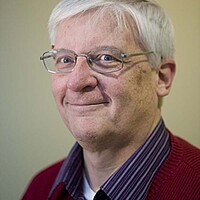SunFunder uses crowdsourcing to finance solar projects in Africa, India
Loading...
The cost of solar power has come down dramatically in recent years. And millions of people in the developing world desperately need a cheap, clean source of energy. But solar is only coming to them slowly.
What's holding things up?
While there are some tough distribution hurdles to leap to get solar power to remote villages, the bigger challenge is how to finance it. Customers usually can pay very little up front. They need ways to "pay as you go," buying electricity as they use it. But solar power companies need capital up front to finance their projects.
That's where SunFunder steps in. It's a solar-financing company that partners with solar businesses in places like Africa and India.
And where does SunFunder get its money? Right now it's taking advantage of crowdsourcing. Some 600 individuals from 33 countries have provided loans averaging about $100 each. As it grows, SunFunder is also reaching out to larger private investors, foundations, and even government entities.
"We see a really big opportunity there," says Ryan Levinson, who founded SunFunder in July 2012. While crowdfunding has been a great launching pad, the need for large amounts of capital is evident. "We believe it's going to be a profitable industry," says Mr. Levinson, who previously had served as a vice president for solar projects at Wells Fargo. Solar could "provide energy to over a billion people" in the developing world who lack it, he says.
Kerosene and diesel are the current fuels of choice in the developing world. But they are dirty sources of energy, create poor indoor air quality, contribute to climate change, and are very costly. Poor people "spend a huge amount of their income for energy," Levinson says. "That's what energy poverty is."
To attack the problem Sunfunder makes short-term loans to solar businesses of one to three years. The loan sizes have ranged from $4,000 to $25,000. So far 10 projects have been funded on the SunFunder website, totaling $140,000. The first of these modest-sized loans, which big banks often ignore as not worth their time, already has been 100 percent repaid.
While solar has an important role to play in cooking, lighting, and heating, its biggest appeal in developing countries is as a means of charging cell phones.
"Cell phone charging is the No. 1 reason people want solar," Levinson says. "We hear that over and over again. It took me a few times hearing it before I started believing it."
Some 600 million people in the world have cell phones but lack access to any kind of convenient or affordable way to charge them. They may have to walk for hours to a charging station, which might consist of a car battery being charged by a diesel engine.
Cell phones are opening up new ways for poor people to pay for things, including solar power. "Now people are able to charge their cell phones with solar energy – and also pay for their solar energy by cell phone," Levinson says. In that way, solar power is "not just about access to energy but access to [cell phone] connectivity, to information."
The repayment rate to SunFunder and its investors has been 100 percent, he says. "We're very careful" in choosing solar companies to work with, Levinson says. "They have to have a strong track record and know what they're doing."
The growing San Francisco-based company has a five-person team, including cofounder Audrey Desiderato, who is stationed in Tanzania.
After weighing the advantages and disadvantages of organizing as a nonprofit entity, Levinson decided SunFunder should be a for-profit company to maximize its ability to grow.
"I think there is still a big role for nonprofits" in solar power, he quickly adds, especially in funding "more risky" experimental or pilot projects, such as solar-powered cell phone towers.
"There's a lot of experimentation, a lot of business models being tested," he says.
• For more information visit SunFunder.







